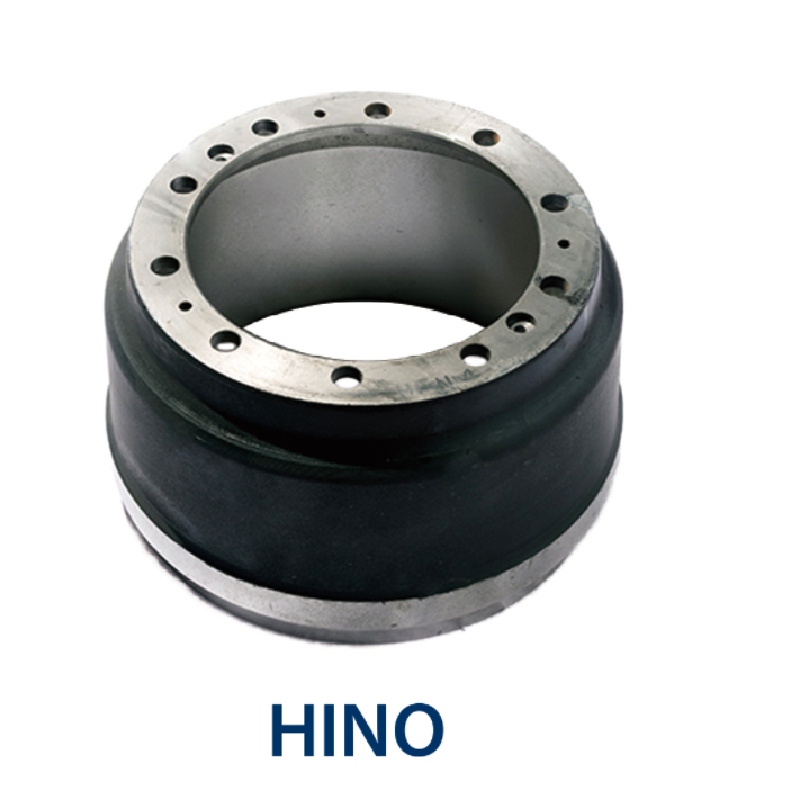Nov . 25, 2024 07:11 Back to list
Can Brake Drums Lead to Vehicle Vibration Problems and Impact Performance?
Can Brake Drums Cause Vibration?
Brake drums are an essential component of the braking system in many vehicles, particularly those equipped with drum brakes. While they play a vital role in ensuring safety, they can also be a source of unwanted vibrations if not properly maintained. Understanding the causes of these vibrations and their effects is crucial for vehicle owners who want to ensure a smooth and safe driving experience.
One of the primary reasons brake drums can cause vibration is due to warping. Brake drums are typically made of cast iron or aluminum, materials that can deteriorate over time due to heat. Each time the brakes are applied, friction generates heat. If the brakes are used excessively or if the vehicle is subjected to heavy loads, the brake drums can become overheated, leading to warping. When a brake drum is warped, it does not make uniform contact with the brake shoes, causing the vehicle to vibrate during braking.
Another contributing factor is wear and tear. Over time, the brake drum surface can become uneven, which can result in vibrations when the brakes are applied. The pads or shoes that press against the drum may also wear out irregularly due to improper adjustment or maintenance, further exacerbating the issue. If the brake components are not regularly inspected and replaced when necessary, the likelihood of vibration increases significantly.
Brake drum mounting issues can also play a role
. If the brake drum is not correctly installed or securely fastened, it may wobble while rotating, leading to vibrations that can be felt through the steering wheel or the vehicle floor. Ensuring that all components are securely fitted is vital for the optimal performance of the braking system.can brake drums cause vibration

In some cases, vibrations may not solely originate from the brake drum itself but could also be influenced by other factors such as the wheel alignment and suspension system. If the vehicle's alignment is off, or if there are issues with the suspension components, these can cause vibrations that may feel like they are coming from the brakes. Thus, it is essential to address any related issues that may contribute to the vibration.
The impact of brake drum-induced vibrations extends beyond just discomfort while driving; it can also lead to a decline in braking performance. When vibrations are present, the effectiveness of the brakes may diminish, increasing stopping distances and potentially compromising safety. Additionally, persistent vibrations can lead to further wear on braking components, necessitating more frequent repairs and replacements.
To mitigate vibrations caused by brake drums, regular maintenance is crucial. This includes periodic inspection of the brake system, ensuring proper adjustments, and replacing worn components in a timely manner. If vibrations are detected, it is advisable to have a professional technician diagnose the issue to determine whether the brake drums need resurfacing or replacing. In many cases, addressing the problem early can prevent more severe issues down the line.
In conclusion, while brake drums are designed for optimal performance, they can cause vibrations if not properly maintained. By staying vigilant about brake system maintenance and promptly addressing any emerging issues, vehicle owners can ensure a smoother and safer driving experience while extending the lifespan of their braking components.
-
Your Brake Drum Man: Premium & Reliable Brake Drums for Sale
NewsAug.18,2025
-
ROR Web Development: Build Fast, Scalable, Secure Apps
NewsAug.17,2025
-
Scania Brake Drums: OEM Quality for Optimal Safety & Durability
NewsAug.16,2025
-
R.V.I: Advanced Remote Visual Inspection for Precision
NewsAug.15,2025
-
Discover HYUNDA: Innovative Vehicles, Equipment & Solutions
NewsAug.14,2025
-
R.V.I: Unlock Advanced Insights & Real-time Performance
NewsAug.13,2025
